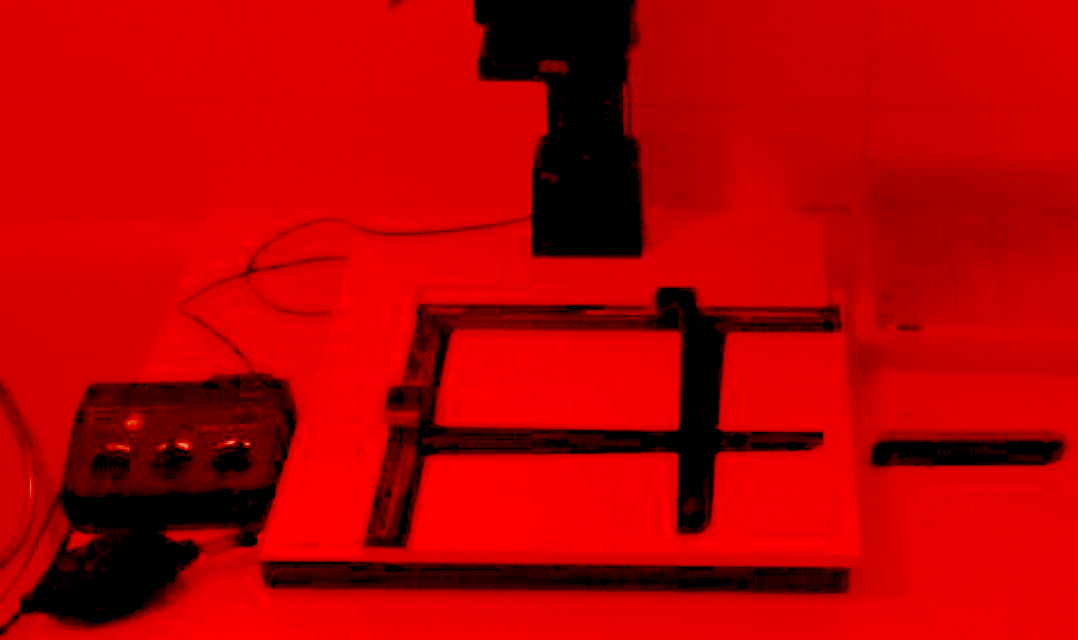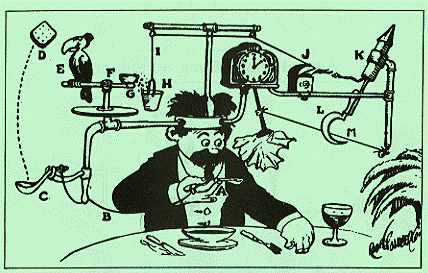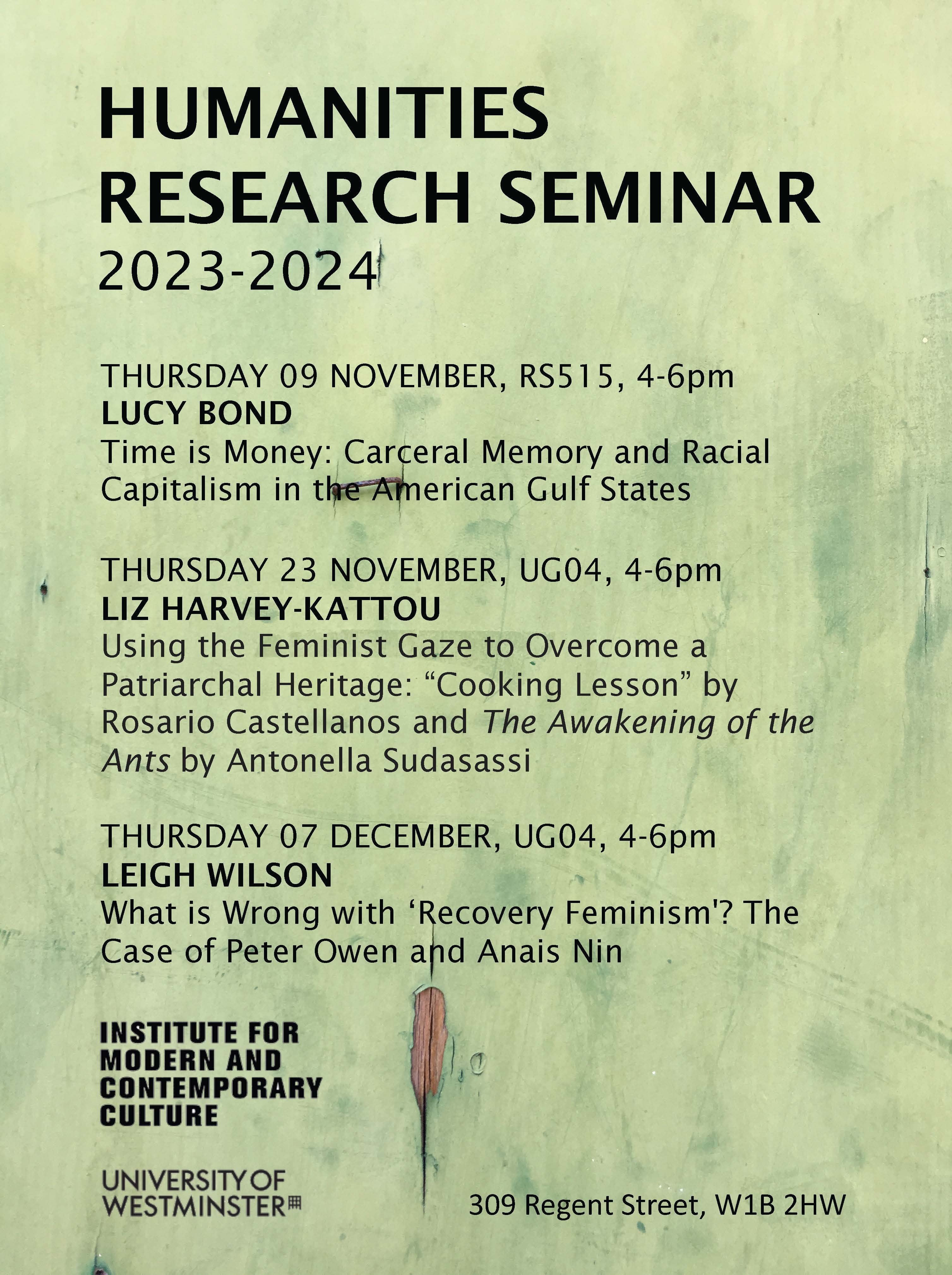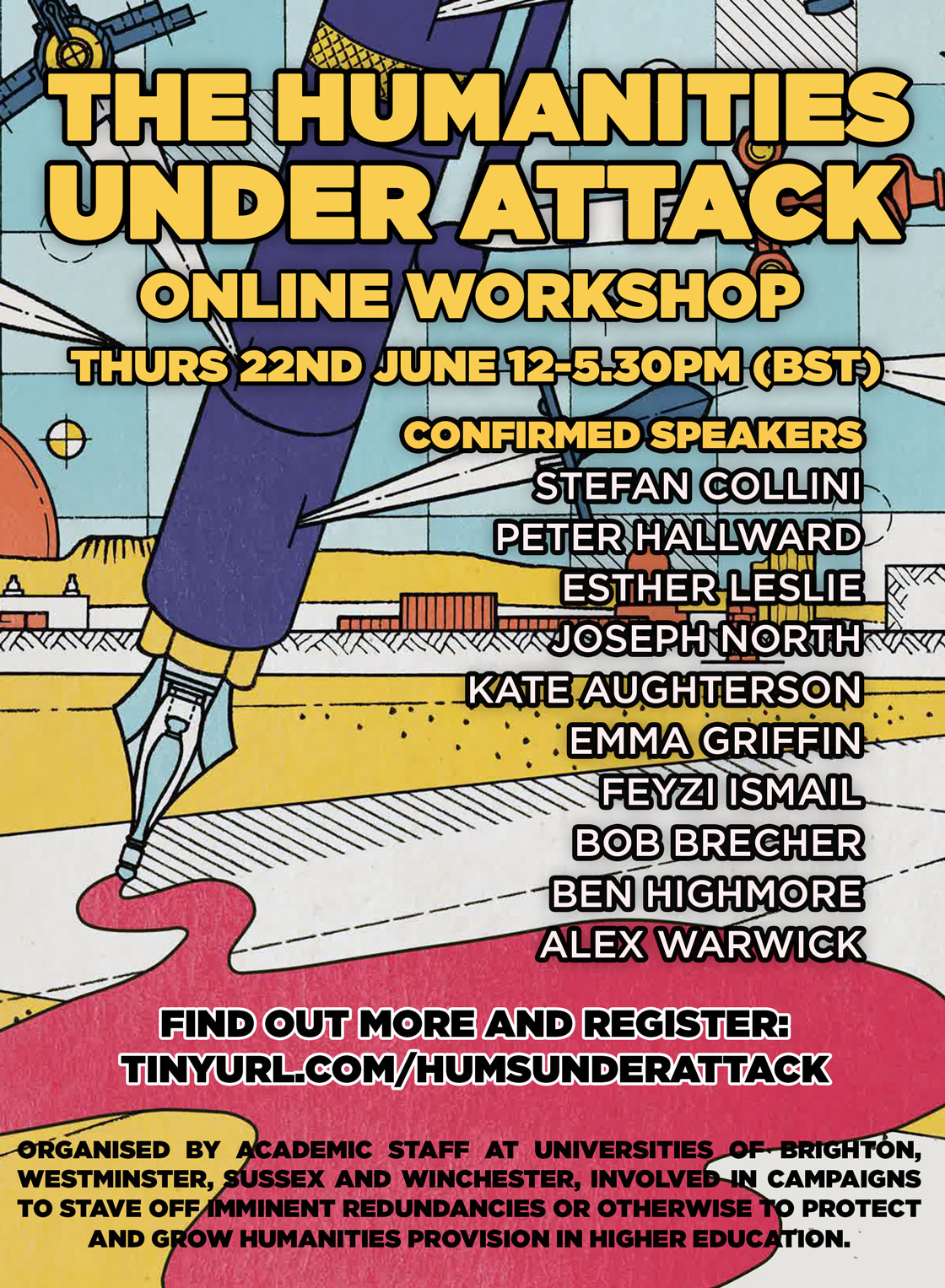AHRC Collaborative Doctoral Partnership (CDP) studentship
The Home Darkroom and the Freedom of Photographic Production in Britain, 1950s-present
The University of Westminster and the Museum of the Home are pleased to announce the availability of a fully funded collaborative doctoral studentship from October 2024 under the AHRC’s Collaborative Doctoral Partnership (CDP) scheme.
This PhD will be the first to research the relationship between the home darkroom and LGBTQ+ people’s quest for freedom of expression and visual representation in Britain from the 1950s to the present. The project will combine the archival study of LGBTQ+ photographic practices at home with two complementary collecting projects: oral history interviews with LGBTQ+ darkroom users and photographs of and produced in home darkrooms. By working with contemporary practitioners, the student will also rethink how to share such hidden stories with museum audiences.
This project will be jointly supervised:
– at the University of Westminster by Dr Sara Dominici (Senior Lecturer in Photographic History and Visual Culture), Professor Pippa Catterrall (Professor of History and Policy), and Dr Alison Hesse (Lecturer in Museum and Gallery Studies)
– at the Museum of the Home by Marina Maniadaki (Exhibitions and Project Manager) and Louis Platman (Curator)
The student will be expected to spend time at both the University of Westminster and the Museum of the Home, as well as becoming part of the wider cohort of CDP funded students across the UK. The student will have access to the same levels of training, support, and expertise as members of staff at the Museum of the Home, thus developing core museum skills alongside academic capabilities.
For more information on the studentship and how to apply, follow this link.
Humanities and IMCC Research Seminar Series, March and April 2024
7th March – Dr Ailsa Peate: “‘The narco is in fashion’ (Martell, 2022). Representations of Corporeality and the Banalization of Violence in Pre-Transitional Mexico”
28th March (extended session) – Dr Nigel Mapp: “Adorno, Hamlet, and the Protestant Animal” and Dr Federica Mazzara: “Borders as Playscapes of Resistance” POSTPONED
11th April – Dr Sara Dominici: “Seeing in the Darkroom”
Seminars start at 4pm in UG04, 309 Regent Street. All welcome.
Re-imagining Cross-sector Collaborations, March 13, 2024
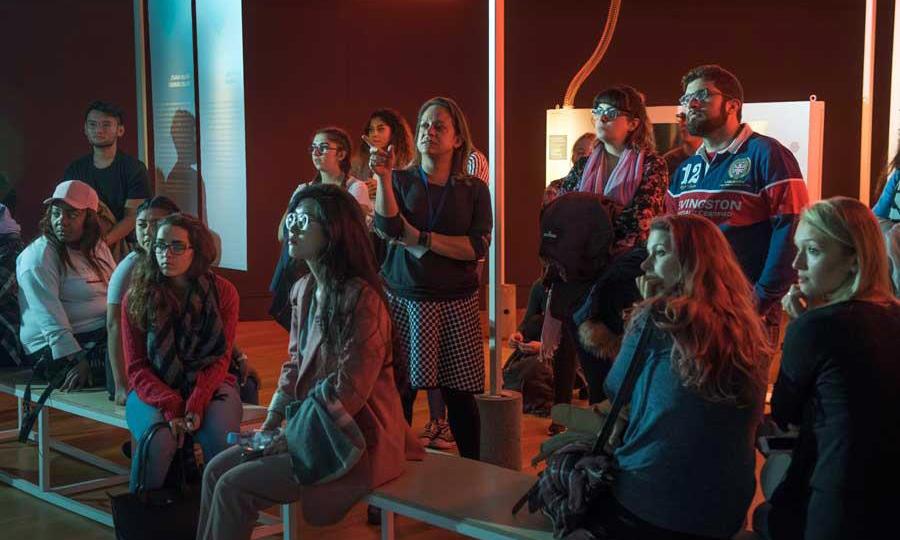
13 March 2024, 5.30 pm
Fyvie Hall, Ground floor, University of Westminster, 309 Regent Street, London
You are warmly invited to join a roundtable discussion to explore how researchers across museums and universities can work together to meet the challenges of a rapidly changing research landscape. This event is produced by the MA Museums, Galleries & Contemporary Culture at the University of Westminster in collaboration with the Museum of London Docklands.
The idea of what comprises ‘research’, who and what this involves, and its impact and responsibilities have undergone a significant change in the twenty-first century. Researchers are encouraged to be more outward facing, collaborative and enterprising. This has changed the kinds of research we do, as well as the places it is performed. Academic research has always been central to university life, but increasingly it has been recognised as an integral function of the museum: underpinning the care, display and understanding of collections; the content of exhibitions and programming; and the museum’s relationship with its audiences.
With interventions from funding bodies, museum research has become more formalised, more academic, and the boundaries between the university and museum worlds have become permeable. Alongside this shift, the role of museums in society has been increasingly questioned, with calls to decolonise, diversify, and democratise museum practice, offering challenges and opportunities for new museum-based researchers. In higher education institutions the research landscape is also changing, where the Research Excellence Framework exercise (REF), with its emphasis on impact and knowledge exchange, is shaping the research agenda.
Despite these different institutional pulls, researchers in museums and universities have more in common than ever, sharing a commitment to learning from the past to engage critically with the present and imagine a different future. Working in complex, bureaucratic institutions also shapes how responsive researchers can be to the challenging cultural and social issues they can encounter. As such, this evolving research environment has the potential to generate new opportunities to rethink traditional boundaries between scholarship and practice-based research, and to imagine new synergies for cross-sector collaborations that will benefit both fields and, crucially, the communities we all serve.
Chaired by Domenico Sergi (Senior Research Lead, Museum of London), this roundtable discussion brings together Jeremy D. Hill (Head of Research, British Museum), Joanna Norman (Director, V&A Research Institute), Saskia Huc-Hepher (Reader in Diasporic & Digital French Studies, University of Westminster) and Xiao Ma (Doctoral Researcher, University of Westminster).
For more information and to book a place, follow this link.
Techne Collaborative Doctoral Awards at University of Westminster
We’re delighted to say that IMCC members will be involved in supervision for two exciting Collaborative Doctoral Awards to be hosted at the University of Westminster starting in September 2024, under the AHRC’s Collaborative Doctoral Award scheme funded by Techne. Deadline for applications is 5pm on Friday 5 January 2024.
Photography by Train: New Leisure Experiences of Heritage in Britain, 1880s–1930s
This PhD will be the first to focus on the user experience of combining photography and train technologies in Britain between the 1880s-1930s by bringing the photography and transport collections of the SMG’s National Science and Media Museum in Bradford (NSMM) and National Railway Museum (NRM) in York into conversation with one other.
The successful applicant will have the opportunity to be embedded with the SMG and access the same levels of training, support, and expertise as members of staff, thus developing core heritage skills alongside academic capabilities. The project will be supervised by Dr Sara Dominici (Senior Lecturer in Photography Studies and Visual Culture), Professor Pippa Catterrall (Professor of History and Policy) and Dr Alison Hess (Lecturer in Museum and Gallery Studies) at Westminster, and, at the SMG, by Dr Oliver Betts (Head of Research) at the NRM in York and Dr Ruth Quinn (Curator of Photography and Photography Technology) at the NSMM in Bradford.
This inter-museum approach supports the SMG’s ambitious programme to understand and reimagine its collections by allowing for a relatable, human story to be told about how cameras and trains shaped people’s leisure experiences. Its collections-based approach expands the potential for public outputs, and the major redesign work of the NRM’s Vision2025 and of the NSMM’s photography displays offers a great opportunity to research and present these collections’ stories to the public through new displays, talks, and online content.
The PhD will investigate how the interaction of camera technologies and rail travel influenced people’s leisure practices and, consequently, their understanding and use of the British countryside and its heritage between the 1880s and 1930s.
Further details here: https://www.westminster.ac.uk/study/postgraduate/research-degrees/studentships/techne-collaborative-doctoral-award-cda-studentship-photography-by-train
Pride, Passengers and Personnel: Collecting LGBTQ+ Experiences in and on London’s Transport in the 1970s and 1980s
The PhD will provide an opportunity to explore forgotten or neglected histories of the LGBTQ+ community in relation to London transport and contribute to current debates around contemporary collecting as a tool for empowering communities.
LTM is committed to diversity and inclusivity throughout its activities and organisation and has identified a gap in its collections on LGBTQ+ experiences in the 1970s and 1980s. This significant period of change was marked by the partial decriminalisation of male homosexuality in 1967, the advent of Pride and the Gay Liberation Front in the early 1970s, the AIDS pandemic in the 1980s and the passage of S.28 in 1988. Addressing the current silence of the archive on these experiences will enrich LTM’s collections and provide context for their contemporary displays.
The successful applicant will have the opportunity to be embedded with the LTM and access the same levels of training, support, and expertise as members of staff, thus developing core heritage skills alongside academic capabilities. The project will be supervised by Dr Alison Hess (Lecturer in Museum and Gallery Studies), Professor Pippa Catterall (Professor of History and Policy) at Westminster, and, at the LTM, by Dr Ellie Miles Curator of Contemporary Collecting.
The student will have the opportunity to develop new approaches to collecting activity, taking a more inclusive, community-centred approach to researching, finding, and sourcing new material. This action research will be useful to LTM, providing reflections on a new collecting method that could potentially be applied more broadly across different collection areas. The student’s findings can be fed into the Museum’s collections development policy and contemporary collecting programme.
The PhD will focus on the experiences of London Transport staff and passengers during the 1970s and 80s which saw growing LGBTQ+ visibility and increasing workplace protection of minorities through legislation. The project will reflect on how London Transport managed such issues, including examining intersectionalities within LGBTQ+ groups. Passenger experiences will enhance understanding of how LGBTQ+ people use public transport, whether as an amenity, a site of potential encounters, or something to be negotiated with anxiety.
Further details here: https://www.westminster.ac.uk/study/postgraduate/research-degrees/studentships/techne-collaborative-doctoral-award-cda-studentship-pride-passengers-and-personnel
Inside Out: The Workings of a Photographic Gallery
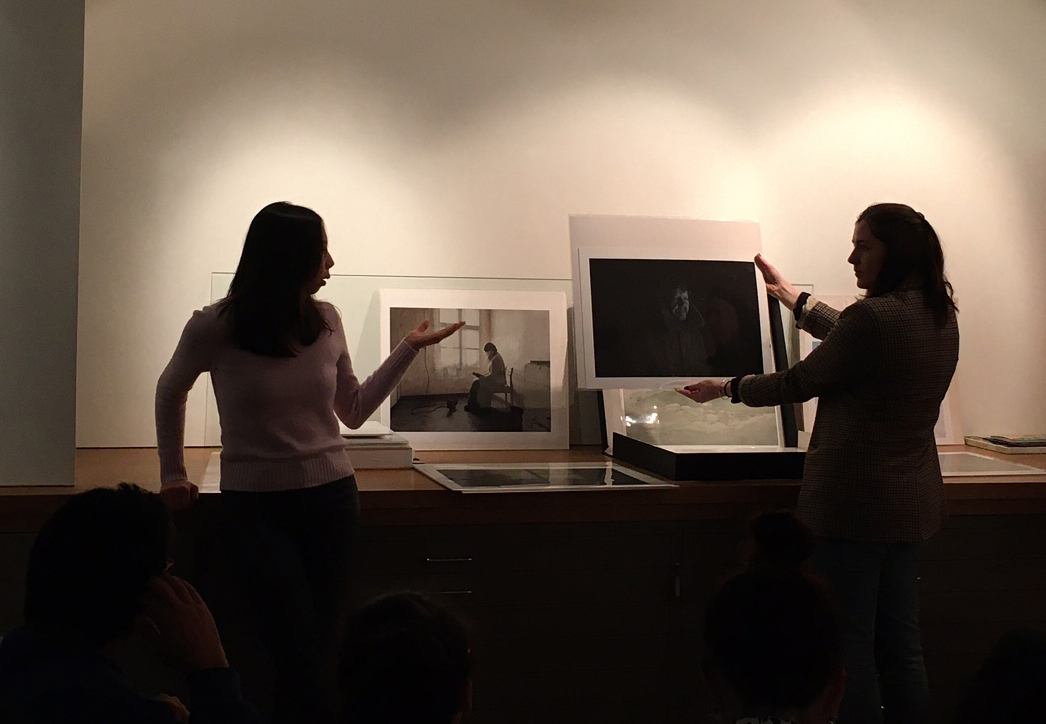
Following a successful run last year, Sara Dominici from the IMCC is again leading the course “Inside Out: The Workings of a Photographic Gallery” in collaboration with The Photographers’ Gallery next year. Each session goes behind the scenes at The Photographers’ Gallery to consider what it means to present and work with photography in the 21st century. More information about the course, including details of each session, is available on The Photographers’ Gallery website.
AHRC Techne Studentships
The University of Westminster (including staff in the IMCC) is one of the nine universities that make up the AHRC-funded technē Doctoral Training Partnership for PhDs in the Arts and Humanities. As well as fully-funded financial support, technē offers a developmental framework for doctoral researchers across the collaborating institutions, with research training, supportive community networks, professional and public engagement opportunities and a space for both independent and collaborative scholarship. Studentships include maintenance and fees for three years for a full time student; or six years for a part-time student. International students are eligible to apply for studentships but will be expected to pay the difference between the home and international fee rate themselves (as the studentship will only cover fees at the home rate, plus the stipend).
For an informal discussion about applications in the IMCC’s subject areas, including modern literary studies and visual culture, please contact Dr Helen Glew: h.glew@westminster.ac.uk
The deadline for applications is Friday 1 December 2023 by 5.00 pm. Interviews will be held in the week commencing 15 January 2024.
Further details, including how to apply, can be found here: https://www.westminster.ac.uk/study/postgraduate/research-degrees/studentships/techne-ahrc-doctoral-training-partnership-studentships-0
Review of In the Photographic Darkroom conference
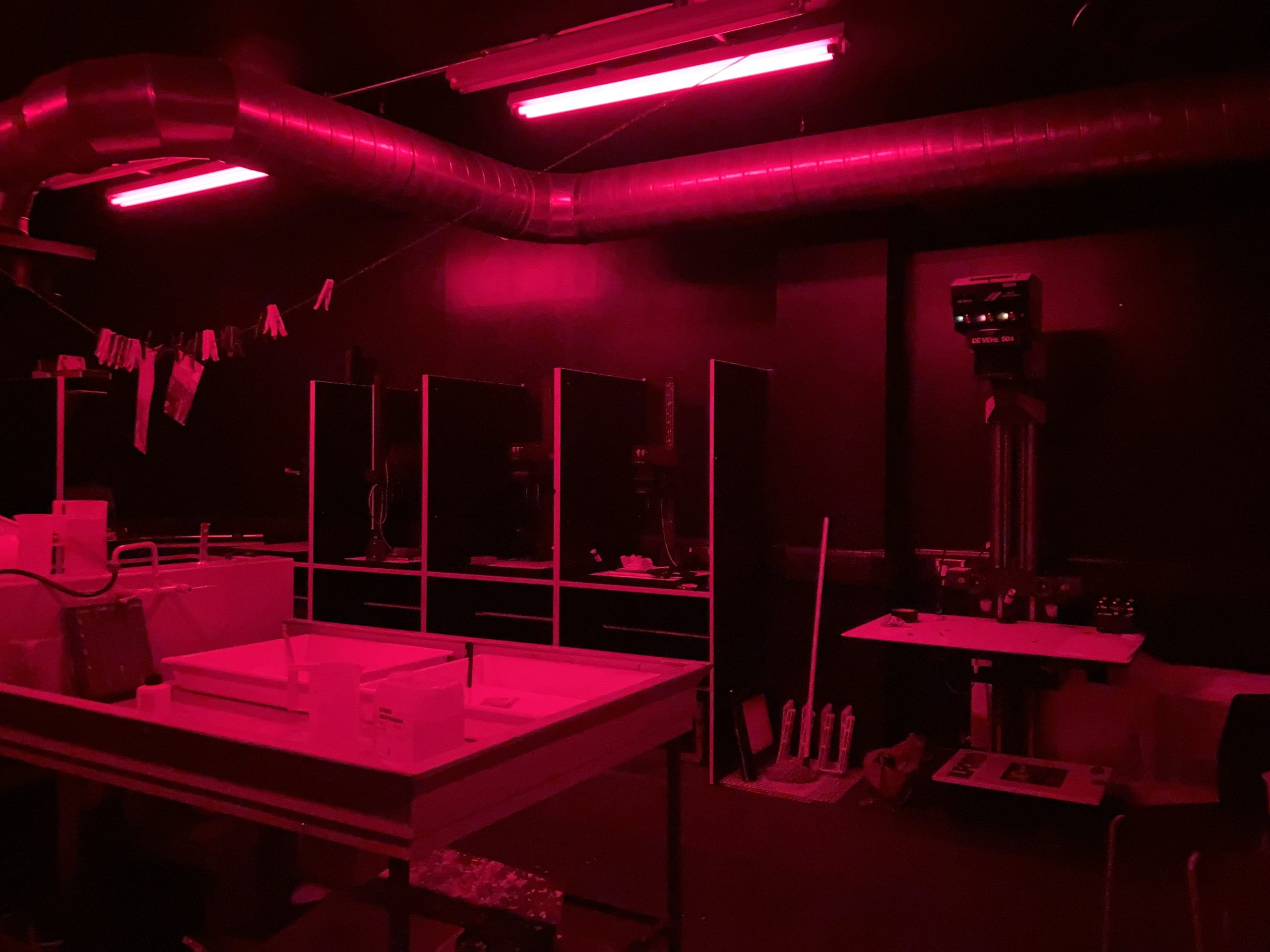
Jo Gane, Darkroom at BCU (Birmingham City University)
Writer and PhD researcher, Alice Mercier, has written an excellent review of “In the Photographic Darkroom“, the conference co-organised by the IMCC and led by Sara Dominici back in June of this year. As Alice writes: “Instead of viewing the darkroom as a neutral container for photographic production, this conference studied the darkroom as a space with its own materiality, rhythm and choreography”.
Read the full piece on the CREAM website here.
In the Photographic Darkroom conference, June 8-9 2023
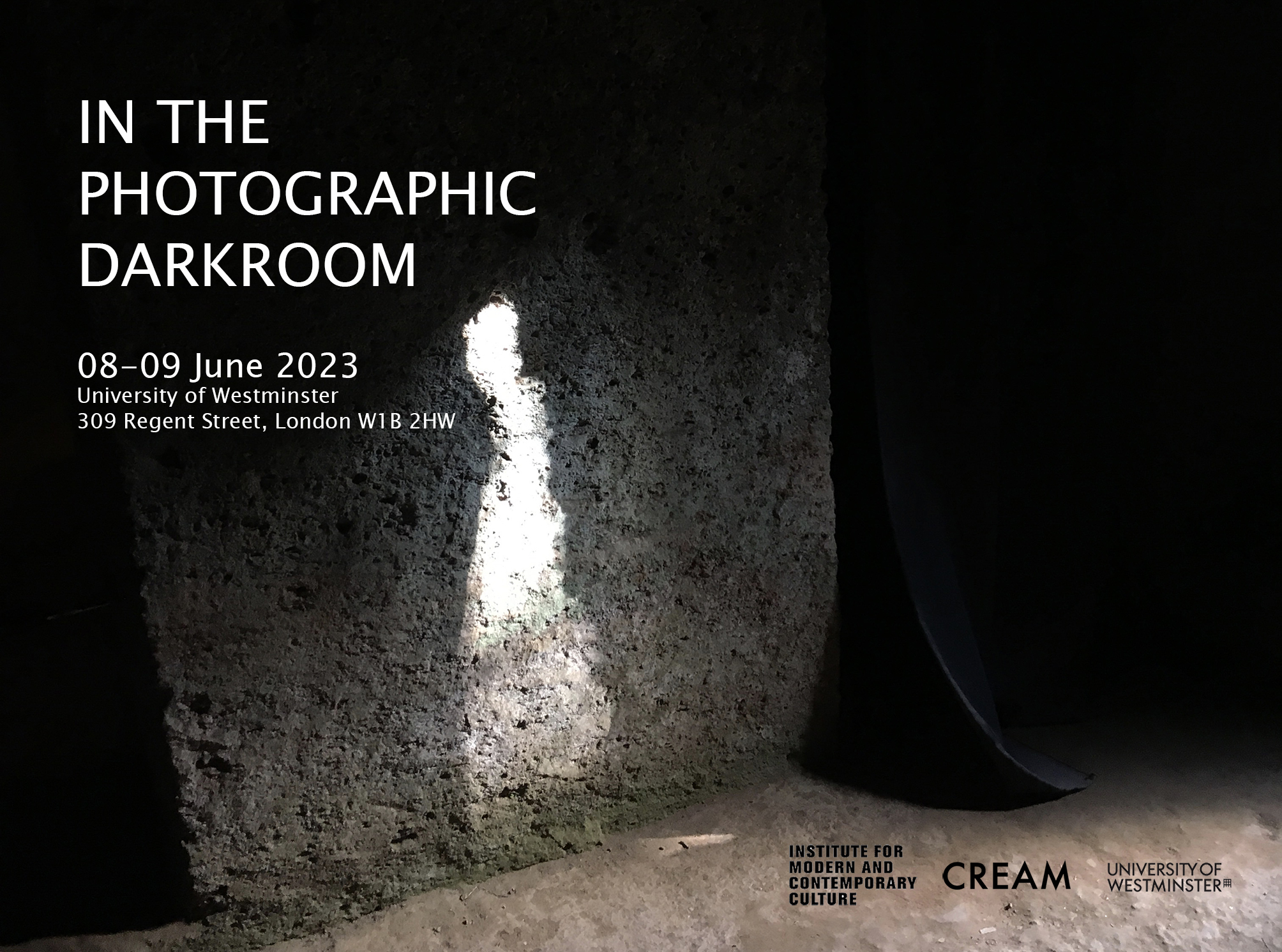
June 8th-9th 2023
University of Westminster, 309 Regent Street, London W1B 2HW
In the Photographic Darkroom
What role has the photographic darkroom played in the histories of photography and visual culture? How has this space, at times known as the camera obscura, developing room, laboratory, operating room, operating box, darkened chamber, photographic tent, dark tent, and developing tent, shaped ways of living and knowing?
Historical accounts of the wet darkroom are sparse, and critical discussions largely limited to this space as the site of photographic manipulation. Yet, the darkroom is not a neutral container for photographic production, but a space with its own materiality, rhythm, and choreography that has been central to experiences of, for example, scientific experimentation, research, learning, commerce, colonial encounters, political and cultural agency, sociability, and individual and artistic expression.
This hybrid two-day event initiates a critical conversation about the largely overlooked space of the darkroom, and outlines new ways to research, theorise, and interpret the roles that it has played in our modern world. In the Photographic Darkroom will seek to do so by shifting the focus from the visual product (e.g., negatives and prints) to the setting itself within which these objects were produced, positing that the material, socio-cultural, and corporeal dimensions of the darkroom had an influence on how people conceptualised and, consequently, understood photography. This will enable us to rethink the role of photography in the development of modern visual culture, and its wider historical relations, from fresh viewpoints.
Check out the conference website here: https://sites.google.com/my.westminster.ac.uk/darkroom/home
Prose as a Medium of Contemporary Art seminar, Monday 20 February 2023
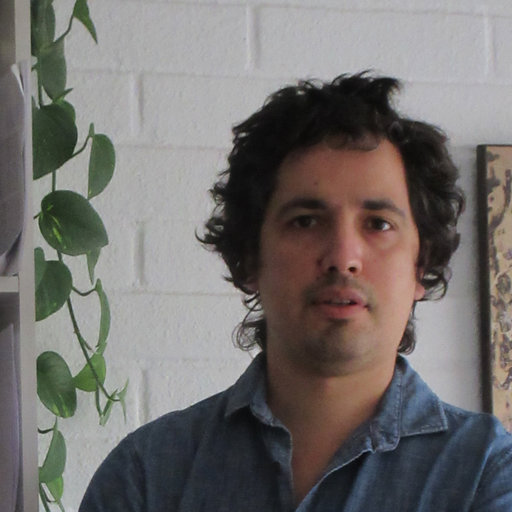
Monday 20 February 2023, 5.15 pm
Room 201, University of Westminster, 309 Regent Street, London
Prose as a Medium of Contemporary Art: A Latin American Perspective
Dr Jorge Manzi (Pontifical Catholic University of Chile)
The Argentine critic Reinaldo Laddaga, reflecting on recent literary works by the “most ambitious” Latin American writers (among which we could mention Cesar Aira, Sergio Chejfec, Diamela Eltit, Mario Bellatin, Nuno Ramos), claimed in 2007 that “all literature aspires to the condition of contemporary art”. The claim is undoubtedly exaggerated. However, it seems undeniable that, worldwide, a growing number of writers feel a certain urge to rethink their practice as participating not so much, or not barely, in the literary tradition, but mainly in that “general” field of the arts called contemporary art. Within this perspective, and entering in a dialogue with theorists such as David Cunningham and Thierry de Duve, this paper will propose, at its most general level, the idea of prose as a medium of contemporary art. Following the inspiring statement of W. G. Sebald, “my medium is prose not the novel”, this proposal could suggest the needtof expand the framework of the theory of the novel in order to conceptualize important recent trends in contemporary prose, at the level of form and historical content.
Secondly, focusing on the work of authors such as Sergio Chejfec, Cesar Aira and Diamela Eltit, the paper will discuss one major trend of contemporary Latin American prose: its scenic orientation. This is the tendency to emphasize or “exhibit” dramatic or theatrical forms (dictions, spaces, temporalities) of presentation that can suspend or complicate more conventional narrative structures. At the same time, these works tend to incorporate and outline material that appears as documental or indexical (R. Krauss), complicating the fictional or artistic status of literary prose. Emphasizing at once its scenic character as well as its raw orientation towards everyday material, Laddaga has called these types of works “reality spectacles”, a kind of prose that seems to move fluently between the model of the novel, installation, and performance. This paper will be specially interested in examining the historical content of these formal trends in Sergio Chejfec’s prose, reflecting on the specificity of a peripheral experience of global contemporaneity.
Elinor Taylor on Ralph Fox and the Communist Theory of the Novel seminar
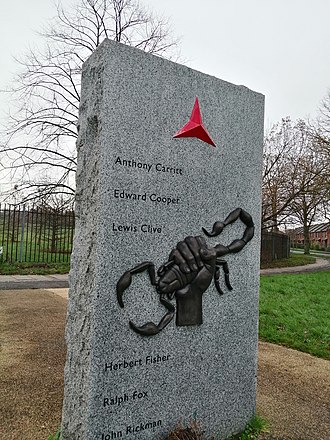
Wednesday 16 November, 17.15-19.00
Cayley Room, University of Westminster, 309 Regent Street
Imperialism, Uneven Development and the Communist Theory of the Novel: The Case of Ralph Fox
Elinor Taylor (University of Westminster)
This paper discusses the British communist, journalist, novelist, literary critic and anti-fascist Ralph Fox (1900-1936). It will attempt to map the relationships between Fox’s work as a novelist and theorist of the novel, on the one hand, and his writings on the historical development of capitalism, the relationships between capitalism, imperialism and fascism, and the prospects for global revolutionary transformation in the wake of the Russian Revolution, on the other. Tracing Fox’s engagement with these interlocking questions over his working life, from his years in Moscow in the 1920s, through Britain in the 1930s, and finally to his death in the Spanish Civil War, the paper tries to extend existing accounts of interplay between communist history, the novel and literary theory.
Call for Papers: In the Photographic Darkroom
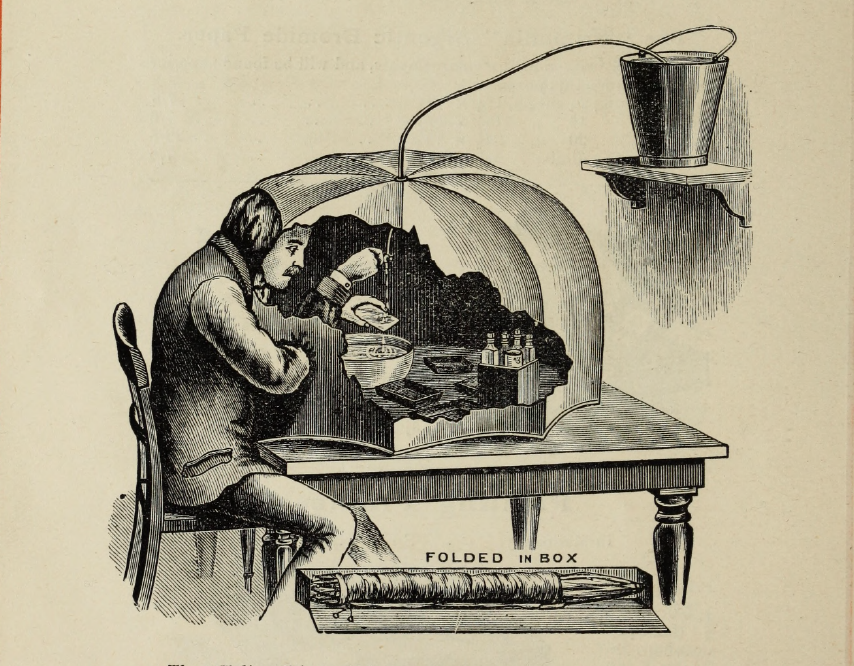
Call for papers for an event taking place on Thursday 8 and Friday 9 June 2023 at the University of Westminster & in hybrid form.
Deadline for paper proposals: by Monday 09th January 2023.
What role has the photographic darkroom played in the histories of photography and visual culture? How has this space, at times known as the camera obscura, developing room, laboratory, operating room, operating box, darkened chamber, photographic tent, dark tent, and developing tent, shaped ways of living and knowing?
Historical accounts of the wet darkroom are sparse, and critical discussions largely limited to this space as the site of photographic manipulation. Yet, the darkroom is not a neutral container for photographic production, but a space with its own materiality, rhythm, and choreography that has been central to experiences of, for example, scientific experimentation, research, learning, commerce, colonial encounters, political and cultural agency, sociability, and individual and artistic expression.
This hybrid two-day event initiates a critical conversation about the largely overlooked space of the darkroom, and outlines new ways to research, theorise, and interpret the roles that it has played in our modern world. In the Photographic Darkroom will seek to do so by shifting the focus from the visual product (e.g., negatives and prints) to the setting itself within which these objects were produced, positing that the material, socio-cultural, and corporeal dimensions of the darkroom had an influence on how people conceptualised and, consequently, understood photography. This will enable us to rethink the role of photography in the development of modern visual culture, and its wider historical relations, from fresh viewpoints.
To this end, we invite papers for 15 minute presentations from academics, practitioners, and museums and archives professionals at all career stages working in research areas such as photographic history, visual culture, media and communications studies, social, cultural and media history, cultural studies, history of art, archives and records management, and any other related fields of research.
Proposals may explore, but are not limited to: Commercial photographic laboratories; Bodily and sensory experiences in the darkroom; Darkroom diseases; Darkroom networks and related communities of practice; Darkroom practices vis-à-vis visual epistemologies; The darkroom technician; The darkroom in visual and popular culture; Global histories of the darkroom (from any historical period); Historic darkrooms; The material culture of the darkroom; Performative and tacit forms of knowledge in the darkroom; Portable darkrooms; Power relations in the darkroom; The relationship between the darkroom and the natural environment; The relationship between the space of the darkroom and its place within urban and not-urban contexts; Researching the darkroom in archives and special collections
Paper proposals should be submitted as ONE Word or PDF document to Dr Sara Dominici at s.dominici1@westminster.ac.uk by Monday 09th January 2023. The document should include:
Your full name
Email address
Institutional affiliation (when applicable)
Paper title
Proposal of no longer than 300 words for presentations of 15 minutes
Indication of whether you would be presenting in person or online
Short biographical note (100-140 words)
Event format: The event will take place at the University of Westminster in London (UK) in hybrid form and we will be able to accommodate a number of online presentations. The language of the event will be English.
Importantly: Selected speakers will be invited to contribute extended versions of their papers to a journal special issue or edited volume on the same theme. Please could all the applicants consider their paper proposals for research not yet published elsewhere as expressions of interest to contribute to the edited publication as well, or specify in the document itself if their paper proposal is based on research that has already been published elsewhere and/or if they would not want to be considered for the edited publication.
The Music of Gothic at the Wallace Collection, Friday 28 October
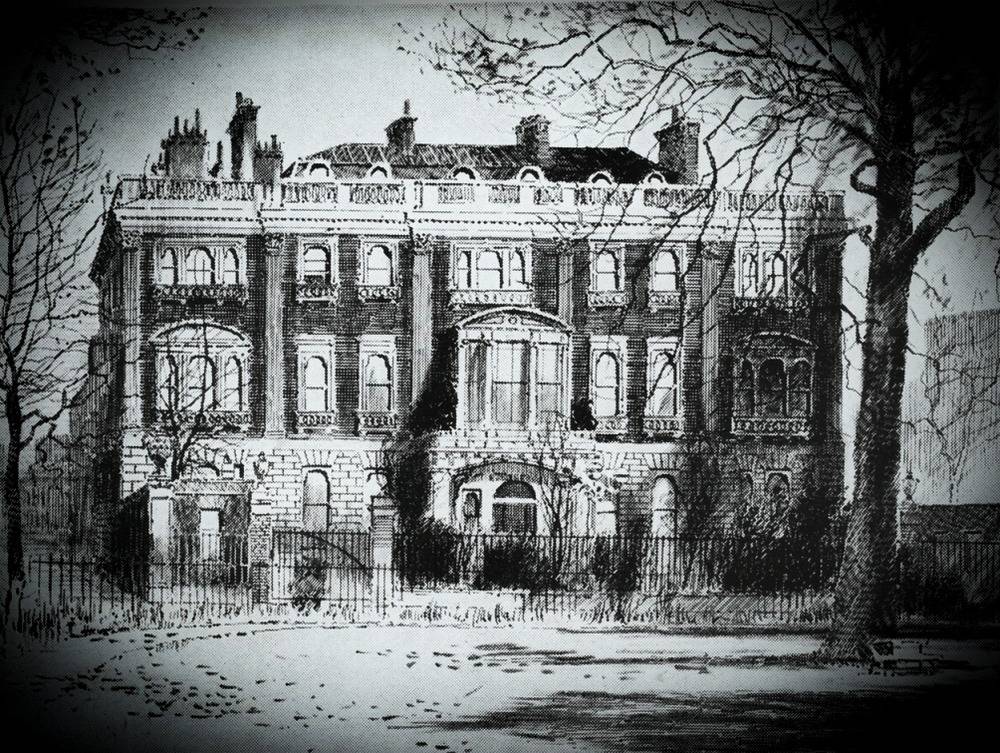
Friday 28th October, 18.30 – 19.45
Great Gallery, The Wallace Collection, Manchester Square, London W1U 3BN
The Music of the Gothic
This Halloween, discover the music of storms and Sicilian peasants, of noble heroes and heroines, and of bandits, witches and ghosts in this intimate lecture-recital. Inspired by the music recitals that bewitched the residents and guests of London’s townhouses in the 18th and early 19th centuries, we invite you to explore the music of Gothic: works composed for plays, melodramas and ballets by composers such as Stephen Storace, Michael Kelly, Thomas Busby, Matthew Peter King and Harriet Abram. Modern Gothic music often sounds eerie, unsettling and full of suspense. But has the music of Gothic always sounded like this? When did its characteristic mood become established? Our own Dr Emma McEvoy will address these questions and more, with live excerpts played by a small orchestra and singers, under the musical direction of Seb Gillot.
Book your place here.
Faridah Àbíké-Íyímídé in conversation
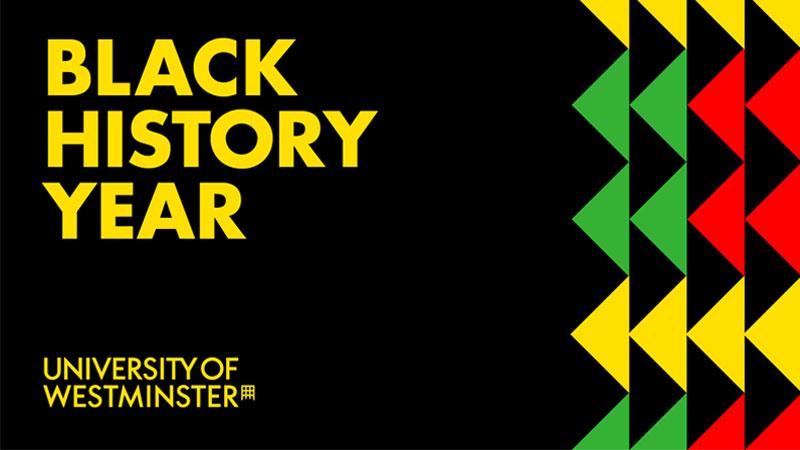
July 5th, 6.00 pm (online)
Faridah Àbíké-Íyímídé in conversation
Organised by our friends in the Queer London Research Forum, in collaboration with the Black History Year steering group at the University of Westminster, a discussion with Faridah Àbíké-Íyímídé, author of the award-winning and New York Times International Best Selling YA novel, Ace of Spades, on the pleasures of Black young adult fiction; the dangers of racist educational structures; and the power of Black queer representation.
Book a place via eventbrite here.
Data Futures’ Annotation of Scientific Literature Changes Preservation Game
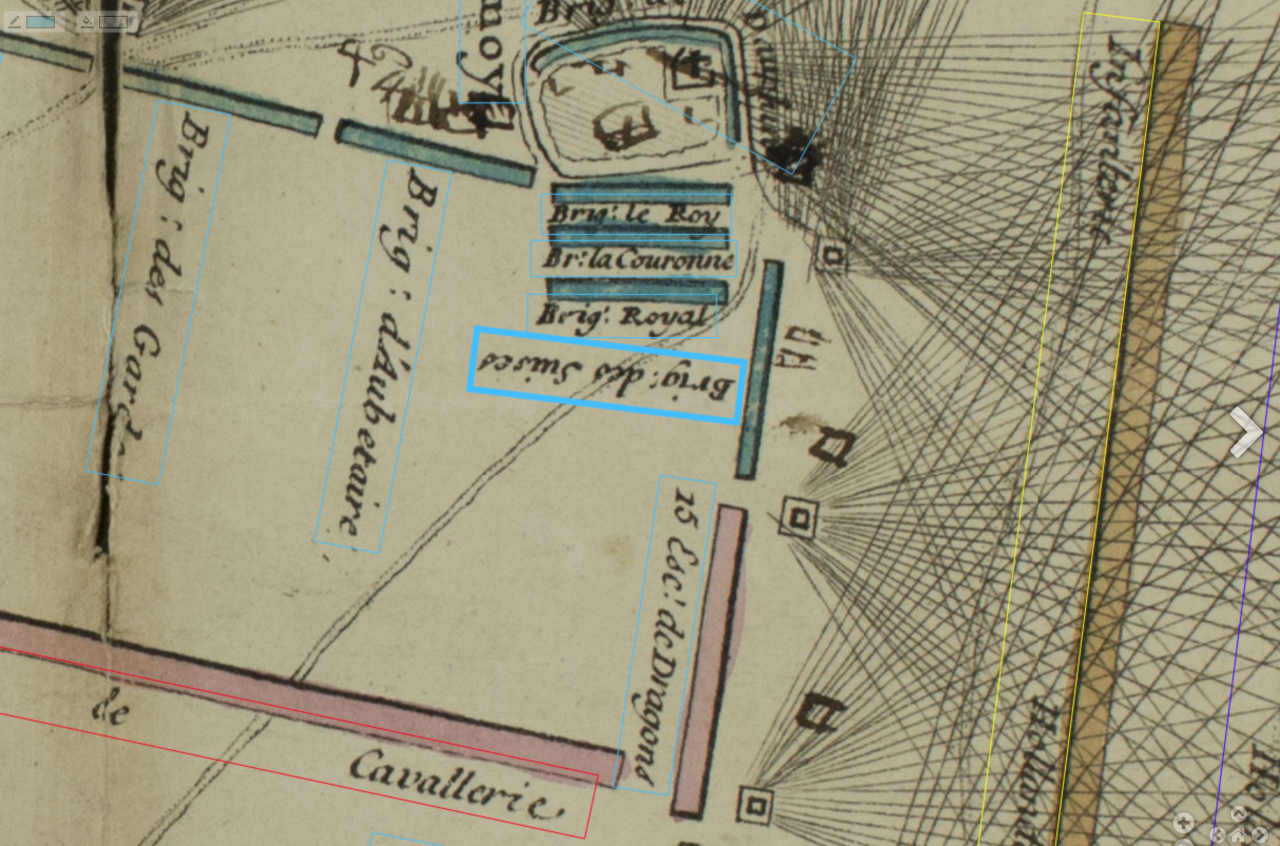
Since 2016, the IMCC’s Data Futures project has worked with the repositories section at CERN in Geneva, and outputs of our collaboration—now the hasdai partnership—developing long-term preservation and scientific annotation standards, are being integrated with Zenodo (see https://doi.org/10.5281/zenodo.2633630, https://doi.org/10.5281/zenodo.3522413).
An international consortium (https://inveniosoftware.org/products/rdm/) has developed around this partnership, and developed a Free and Open Source Software platform—InvenioRDM—which multiple institutions in Europe and the U.S. are now deploying. CERN has commenced re-implementation of Zenodo itself using the RDM platform, and new projects supporting annotation of scientific literature at scale across the biodiversity, medical and social sciences and humanities communities were presented at iPRESS-2021. Two services based on these developments are now publicly available:
First, as species loss accelerates, it has become increasingly recognized that historic literature will become a crucial source of information. Significant progress has been made with automatically extracting ‘taxonomic treatments’ from publications going back as far as 1758 and legislation in many countries now recognizes such treatments as free of any copyright restrictions that may have applied to the original documents. In a collaboration with the editorial board of The European Journal of Taxonomy and Plazi, CERN and Data Futures have converted taxonomic treatments of the complete Journal to WADM annotations accessible in an InvenioRDM repository, making species reported independently discoverable. More information can be found at https://ejt.biodiversity.hasdai.org/
Second, in a parallel project with the Voltaire Foundation, CERN and Data Futures have developed InvenioRDM-based annotation and preservation infrastructure tailored to the eighteenth-century manuscripts relating to Voltaire. Including letters, drafts of books and plays and maps, this important new data resource will provide services to the research community as well as public presentation of Voltaire’s papers—many of which will be made accessible for the first time. The current pilot service is now available at https://voltaire-pilot.ox.hasdai.org/ and extensions to address more than twenty thousand such documents and books are now being planned.
We are happy to provide more information via email to info@hasdai.org
New Amateur Darkroom Practices website

Amateur Darkroom Practices, 1880s-1910s is a two-year Westminster Researcher Development Awards funded project, led by Dr Sara Dominici in the IMCC, which examines the relationship between amateur processes of making and the socio-cultural role of the darkroom in Britain. By combining performative research methods with the analysis of primary sources, the project seeks to reconstruct the contemporaneous processes of developing, varnishing, and printing from gelatine dry plates in order to explore, first, how practices of making shaped non-professionals’ understanding of photography, and, second, the largely overlooked significance of the darkroom, an amateur space for scientific engagement, at a key juncture in the genealogy of popular photography.
The grant will also support a range of associated events. These will seek to bring together people interested in histories of the darkroom and its theorisation, and, relatedly, to consider how and when performative research methods might be harnessed to enrich text-, visual-, and object-based research into photography’s histories.
You can visit the website here.
10 University of Westminster PhD scholarships
The Graduate School at the University of Westminster has announced 10 new full PhD studentships funded by the Quintin Hogg Trust for students of Black, Pakistani or Bangladeshi heritage to begin in the academic year 2022/23 . Applications are welcome in all disciplines at Westminster, including those covered by the IMCC. For queries about any aspect of the application process or informal enquiries about our areas, please contact the School of Humanities PhD Coordinator, Dr Helen Glew: h.glew@westminster.ac.uk
Although the University of Westminster has one of the most diverse student bodies in the UK, with a high percentage of Black and Minority Ethnic (BME) students, the backgrounds detailed below are the most underrepresented among PhD students (and academics) at the University and nationally. Applicants will be ‘home’ students (i.e. will be eligible for home fee status as per the UKCISA guidance available online here) and should then come from one of the following backgrounds:
- Black (Black or Black British African, Black or Black British Caribbean, Black or Black British other or Mixed Black or Black British)
- Pakistani (Pakistani or Pakistani British, or Pakistani Mixed or Pakistani Mixed British)
- Bangladeshi (Bangladeshi or Bangladeshi British, or Bangladeshi Mixed or Bangladeshi Mixed British)
The studentships will consist of a fee waiver and an annual stipend of £17,609 (2021/22 rate, raising each year in line with UKRI increases) for three years.* This includes London weighting.
Applications should be submitted by 5pm on Friday 11 February 2022. Interviews will take place online in the week beginning 7 March 2022.
Further details and a link to make your application can be found here.
Latin American Week at University of Westminster, 30 October – 4 November 2021
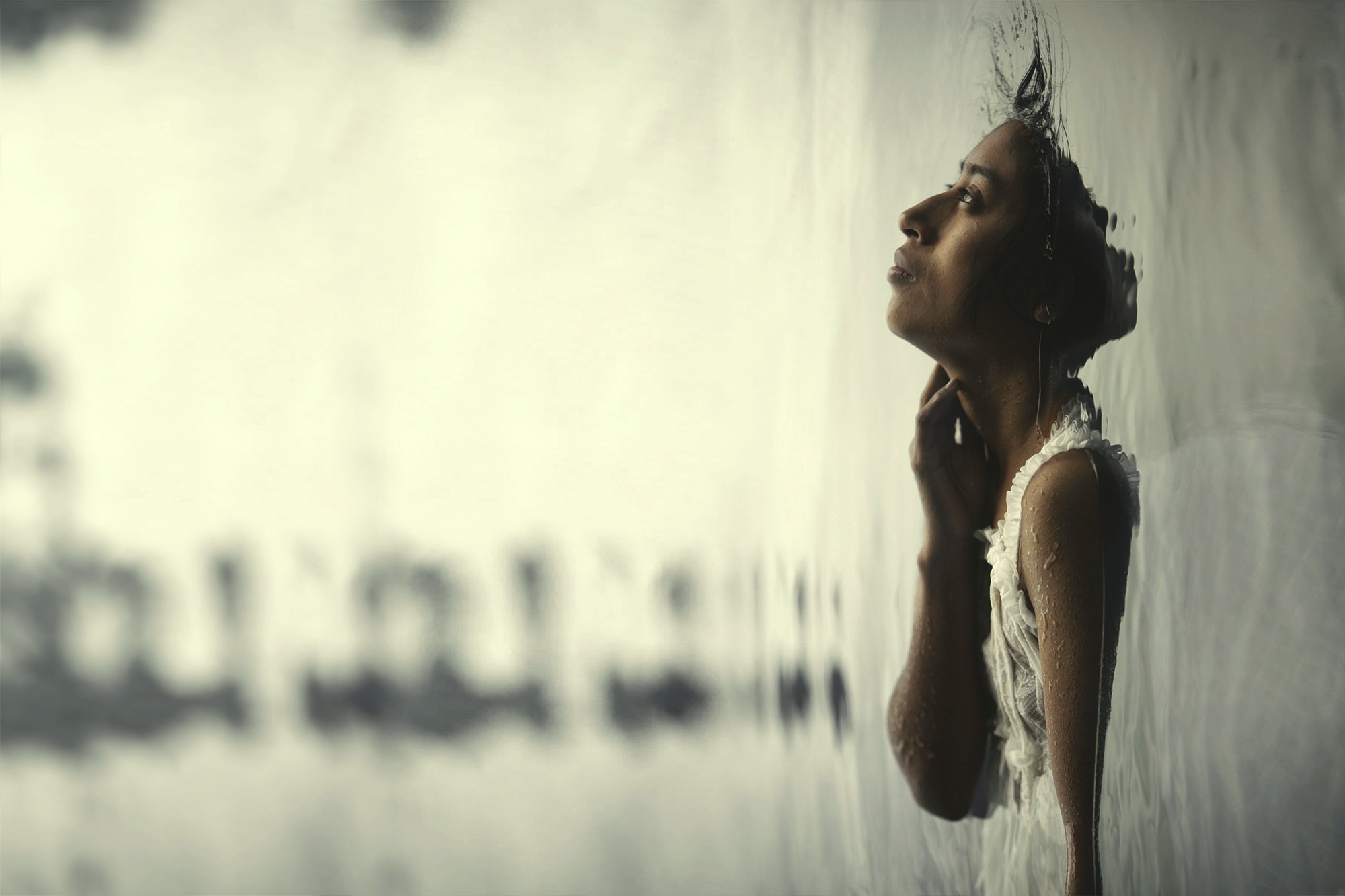
Latin American Studies at Westminster is hosting a series of events celebrating Latin American culture as part of our ‘Latin American Week: Heritage, Identity, and Human Rights’ which will take place 30 October – 4 November 2021.
You can click on the link to each event for more information and to register; all events are bilingual in English/Spanish.
Saturday 30th October, 1.30-4pm: Un museo para mí/A Museum for me (with mujer diáspora)
Tuesday 2ND November, 1.30-3.30pm: Los mitos mexicanos de la familia de José Sherwood González en su obra gráfica en el Día de Muertos/ José Sherwood González’s Graphic Fiction and Mexican Family Myths on Day of the Dead
Thursday 4th November, 5.30-7.30pm: Screening of Jayro Bustamante’s La Llorona (2018, cert. 18)/ proyección de La Llorona (2018, cal. 18) de Jayro Bustamante
Online exhibition: Personal Perspectives
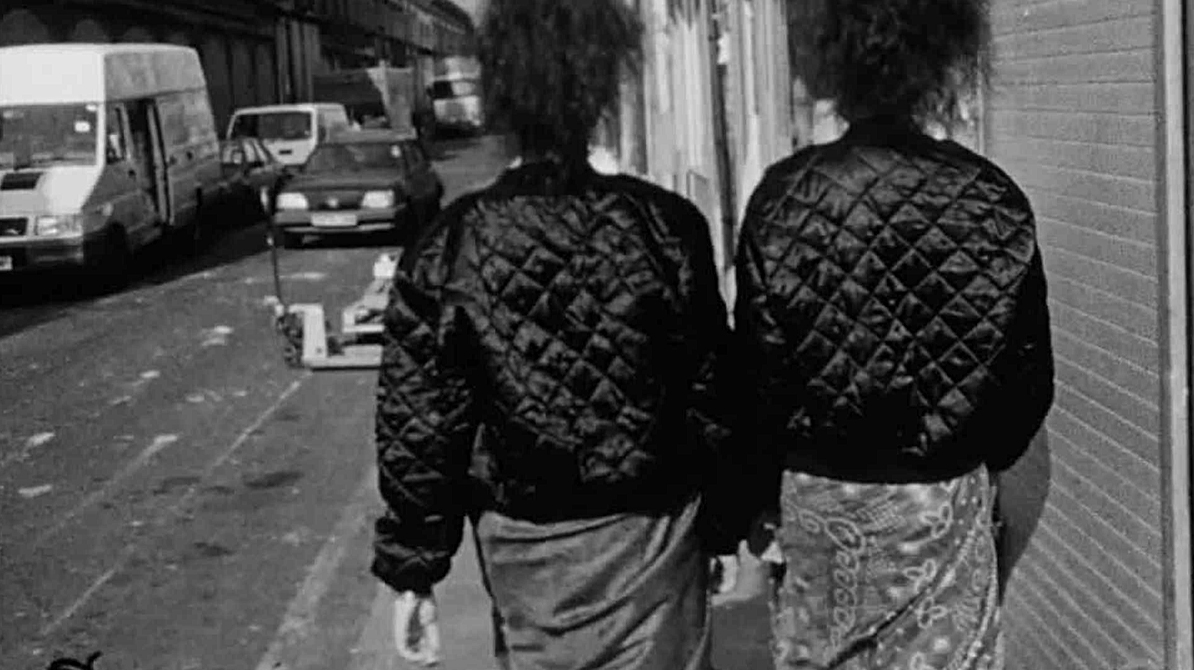
Wednesday 23 June 2021, 6pm – Wednesday 30 June 2021, 6pm
Personal Perspectives is a screening of artists’ works curated from the LUX collection by four final year University of Westminster students, Alex Guiste, Jordan Blanchard, Tia Lewis and Jodie Lawal-Mcdonald, with support by curator Jemma Desai, artist Adham Faramawy and our own Alison Craighead. This project was funded by The Quintin Hogg Trust and supported by LUX.
The process of making the selection began with the group watching Alnoor Dewshi’s seminal work from 1992, Latifah And Himli’s Nomadic Uncle, where two cousins discuss ideas of culture and history while wandering through London. Described by John Akomfrah as an “excellent film on Nomadology and [the] diasporic sublime”, this subtly rich and often humorous work opens this screening: it was the catalyst for the discussions that led to the students’ selection of these three subsequent works: The Very Very End, George Barber, 2013; A Part of Me, Carl Callam, 1998; A is for Artist, Ayo Akingbade, 2018.
Details at: https://lux.org.uk/online-exhibition/personal-perspectives

